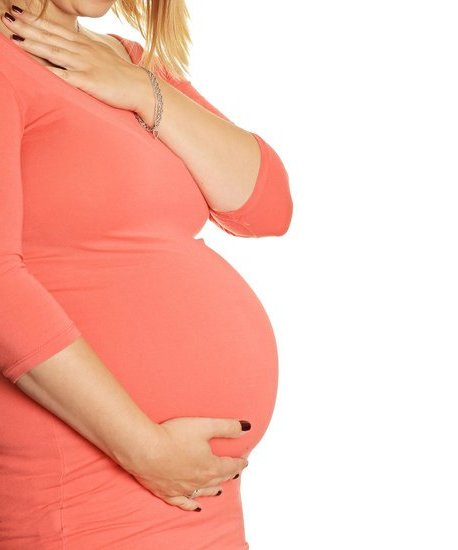Are you experiencing some unusual changes in your body and wondering if you might be pregnant? The first symptoms of pregnancy can often be subtle and easily missed, but they can also be the first signs that a new life is beginning. From a missed menstrual cycle to morning sickness, these early indicators can vary greatly from woman to woman. Understanding what to look for can help you recognize the signs of pregnancy and seek the appropriate care.
Pregnancy symptoms can manifest in a variety of ways, and it’s essential to be aware of these signs, especially if you are actively trying to conceive or suspect that you may have become pregnant. While every woman’s experience with the early stages of pregnancy can differ, there are a few common symptoms that many women encounter.
These initial signs may start appearing as soon as one week after conception, making it crucial to pay attention to even the slightest changes in your body.
In this article, we’ll explore the different symptoms that often mark the beginning stages of pregnancy. From physical manifestations like breast tenderness and increased urination to emotional changes such as mood swings, recognizing these early signs can provide clarity and insight into this significant life event.
Whether you’re actively trying to conceive or simply want to be prepared for any potential changes in your body, understanding the first symptoms of pregnancy is an important part of reproductive health education.
Missing Menstrual Cycle
A missing menstrual cycle is often the first symptom of pregnancy that women notice. For many women, a missed period is the initial sign that leads them to suspect they may be pregnant. When a woman becomes pregnant, the fertilized egg attaches itself to the wall of the uterus, leading to a halt in the normal menstrual cycle. This lack of menstruation is usually a strong indicator that a woman may be pregnant, especially if she has been sexually active.
In addition to a missed period, some women may experience light spotting or cramping, which can be mistaken for an upcoming menstrual cycle. It’s important to note that while a missed period is one of the first symptoms of pregnancy, it is not necessarily foolproof evidence of pregnancy. Other factors such as stress, illness, or changes in weight can also cause irregular periods. Therefore, it’s crucial for women to consider other early signs of pregnancy as well.
Since every woman’s body responds differently to the early stages of pregnancy, some may experience other symptoms before realizing they have missed their period. These symptoms can vary from person to person and can include nausea and morning sickness, breast changes, fatigue, increased urination, mood swings, and food aversions and cravings.
It’s essential for women who suspect they may be pregnant to consider all potential symptoms before confirming their suspicions with a home pregnancy test or by seeking medical advice.
Nausea and Morning Sickness
Nausea and vomiting, commonly known as morning sickness, can be one of the first symptoms of pregnancy that women experience. This usually occurs around the sixth week of pregnancy and can last until the twelfth week. However, some women may experience it for a longer period or even throughout their entire pregnancy. The exact cause of morning sickness is still unknown, but it is believed to be related to the hormonal changes that occur during pregnancy.
Severity and Management
The severity of morning sickness varies from woman to woman. While some may only experience mild nausea, others may have to deal with frequent vomiting and discomfort. To manage morning sickness, it is recommended for pregnant women to eat small meals throughout the day, avoid spicy or greasy foods, drink plenty of fluids, get plenty of rest, and try ginger supplements or tea. In severe cases, a healthcare provider may prescribe anti-nausea medication.
When to Seek Medical Help
While morning sickness is a common symptom of early pregnancy, there are instances when it becomes excessive and affects a woman’s overall well-being. It is important for pregnant women to seek medical help if they experience severe dehydration due to excessive vomiting, weight loss, inability to keep any food or liquid down for 24 hours, or if they vomit blood.
In such cases, medical intervention may be necessary to ensure the health and safety of both the mother and the baby.
Breast Changes
Increased Sensitivity
One of the first symptoms of pregnancy that many women experience is breast tenderness and swelling. This is often one of the initial indicators that a woman may be pregnant, even before a missed menstrual cycle. The hormonal changes that occur in early pregnancy can cause the breasts to become more sensitive to the touch, making them tender and painful.
Swelling and Enlargement
In addition to tenderness, many women also notice an increase in breast size during the early stages of pregnancy. This is due to the surge in hormones, particularly estrogen and progesterone, which can cause the milk ducts in the breasts to expand and the glands to swell. As a result, women may find that their bras feel tighter and their breasts appear larger than usual.
Changes in Nipples
Along with breast tenderness and swelling, changes in nipple appearance are also common during early pregnancy. Many women report that their nipples become darker or more prominent, with visible bumps known as Montgomery’s tubercles. These changes are a result of increased blood flow and hormone production as the body prepares for breastfeeding.
Overall, breast changes are a significant indicator of early pregnancy. While these symptoms can cause discomfort, they are a normal part of the body’s response to hormonal fluctuations during this crucial time.
Fatigue
Being constantly fatigued is often one of the first symptoms of pregnancy that women notice. The body is going through a lot of changes during early pregnancy, including increased production of the hormone progesterone, which can make you feel sleepy or exhausted. This fatigue can be overwhelming and may have you wanting to take naps throughout the day. It’s important to listen to your body and rest when needed.
Some ways to combat this fatigue include getting plenty of sleep at night, taking short naps during the day, staying hydrated, and eating a well-balanced diet. Gentle exercise, such as yoga or walking, may also help boost energy levels. It’s also important to communicate with your healthcare provider about how you’re feeling so they can offer guidance and support.
In addition, making lifestyle adjustments such as delegating tasks, asking for help from friends and family, and setting realistic expectations for yourself can help manage the fatigue caused by early pregnancy. Remember that although it may be difficult to function normally in the midst of exhaustion, it’s a temporary phase that will likely improve in the second trimester.
Increased Urination
One of the first symptoms of pregnancy that many women experience is an increased need to urinate. This can start as early as six weeks into the pregnancy and can be attributed to hormonal changes in the body, specifically an increase in the hormone hCG which causes an increase in blood flow to the pelvic region and kidneys. As a result, the bladder fills up more quickly and women find themselves making more frequent trips to the bathroom.
Common Signs of Increased Urination During Early Pregnancy Include
- Feeling like you need to urinate more often, even if your bladder isn’t full
- Waking up multiple times during the night to use the bathroom
- Experiencing a sudden and strong urge to urinate
These symptoms can be inconvenient for many women, especially those who have jobs or responsibilities that make it difficult to take frequent bathroom breaks. However, it’s important for women experiencing these symptoms to understand that it is a normal part of early pregnancy and is caused by the body adjusting to the changes happening within.
In addition, pregnant women should remember to stay hydrated despite their increased need to urinate, as dehydration can lead to complications such as urinary tract infections. If you are concerned about your frequency of urination or any other first symptoms of pregnancy, it’s always best to consult with a healthcare professional for further guidance and reassurance.
Mood Swings
During the early stages of pregnancy, many women experience mood swings as one of the first symptoms of pregnancy. These sudden changes in emotions can be attributed to the hormonal fluctuations that occur during this time. It is not uncommon for women to feel irritable, weepy, or moody as their body adjusts to the surge in hormones brought on by pregnancy.
The rapid increase in progesterone and estrogen levels can have a profound impact on a woman’s mood, leading to feelings of sadness, anxiety, or even anger. For some women, these mood swings may be more intense than others and can add an additional layer of stress during an already emotional time.
It’s important for women experiencing mood swings as one of their first symptoms of pregnancy to recognize that these feelings are normal and to communicate with their partner or support system about what they are going through. Seeking support from loved ones and finding healthy ways to cope with these emotional changes can help make this transition period more manageable.
Food Aversions and Cravings
During the early stages of pregnancy, many women experience unusual food cravings or aversions. These changes in appetite can be one of the first symptoms of pregnancy and are often attributed to the hormonal fluctuations that occur during this time.
Some women may suddenly develop strong aversions to foods they once loved, while others may find themselves craving foods they never cared for before. These sudden and unexpected changes in appetite can be quite puzzling, but they are a normal part of pregnancy for many women.
It is not uncommon for pregnant women to have cravings for certain types of food, such as pickles, ice cream, or spicy foods. These cravings can be intense and seemingly come out of nowhere.
On the other hand, some pregnant women may develop a strong aversion to foods that they previously enjoyed, even finding the sight or smell of these foods repulsive. This sudden change in appetite can be challenging to navigate, but it is important for pregnant women to listen to their bodies and try to find a balance that provides proper nutrition while also satisfying their cravings.
If you are experiencing unusual food cravings or aversions along with other symptoms such as a missed menstrual cycle, nausea, fatigue, or breast tenderness, it may be worth considering the possibility of pregnancy and taking a home pregnancy test or visiting your healthcare provider for confirmation. Understanding the first symptoms of pregnancy is essential for early detection and seeking proper prenatal care.
| Signs | Explanation |
|---|---|
| Food Cravings | Pregnant women may crave certain types of food intensely |
| Food Aversions | Sudden aversion to foods once enjoyed is common during pregnancy |
| Balanced Nutrition | Women should listen to their bodies while ensuring proper nutrition during this time |
Conclusion and Final Thoughts
In conclusion, recognizing the first symptoms of pregnancy is crucial for women who are actively trying to conceive or those who may have had unintended pregnancies. Understanding and being aware of these early signs can help women to make informed choices about their health and well-being. From the telltale sign of a missing menstrual cycle to the roller coaster of emotions experienced through mood swings, every woman’s experience with the first symptoms of pregnancy can vary greatly.
It is important for women to remember that not every symptom will be experienced by each individual, and some women may not experience any symptoms at all during the early stages of pregnancy. However, paying attention to subtle changes in their bodies can be beneficial in detecting pregnancy at its earliest stages.
If a woman suspects that she may be pregnant due to experiencing any combination of these early signs, it is advisable for her to take a home pregnancy test or consult with a healthcare professional. Early detection of pregnancy allows for better prenatal care and can lead to a healthier outcome for both mother and baby.
Being well-informed about the first symptoms of pregnancy empowers women to take control of their reproductive health and make important decisions for themselves and their future.
Frequently Asked Questions
How Soon Do Early Pregnancy Symptoms Start?
Early pregnancy symptoms can start as early as one week after conception. These symptoms may include fatigue, nausea, breast tenderness, and increased urination due to hormonal changes in the body.
How Do You Feel in Early Pregnancy?
In early pregnancy, women may experience a range of symptoms such as fatigue, nausea, vomiting, breast tenderness, mood swings, and food aversions. Some women also report experiencing heightened sense of smell and frequent urination.
How Do You Feel After 1 Week of Pregnancy?
After 1 week of pregnancy, a woman may not feel any different physically as it is still very early in the pregnancy. At this stage, the fertilized egg has not yet implanted into the uterus to begin developing into an embryo. Therefore, physical symptoms are likely to be minimal or non-existent at this point in time.

Welcome to my fertility blog. This is a space where I will be sharing my experiences as I navigate through the world of fertility treatments, as well as provide information and resources about fertility and pregnancy.





